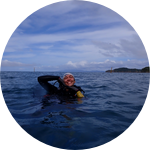1,136
0
0
Like?
Please wait...
About This Project
Costa Rica, known for its rich biodiversity, has 92% of its territory in the ocean. However, it lacks a robust marine technological network for continuous ocean observation and monitoring of changing conditions. Our mission is to establish an advanced ocean monitoring system using smart mooring systems and Argo floats. This will boost marine conservation, promote sustainable resource management, and enhance climate change research through high-resolution, real-time data collection and analysis.

Browse Other Projects on Experiment
Related Projects
Optimizing eDNA sampling: Which filters best capture marine biodiversity?
Recent trials in the Galapagos demonstrate that environmental DNA (eDNA) is a powerful biodiversity monitoring...
Automated Monitoring for the Resilience of Marine Ecosystems in the Dominican Republic (MARE-RD)
Caribbean marine biodiversity is under critical threat from climate change and human pressures, losing...
Upgrading regional ocean monitoring with advanced sensors and open data in Costa Rica
Costa Rica, known for its rich biodiversity, has 92% of its territory in the ocean. However, it lacks a...

